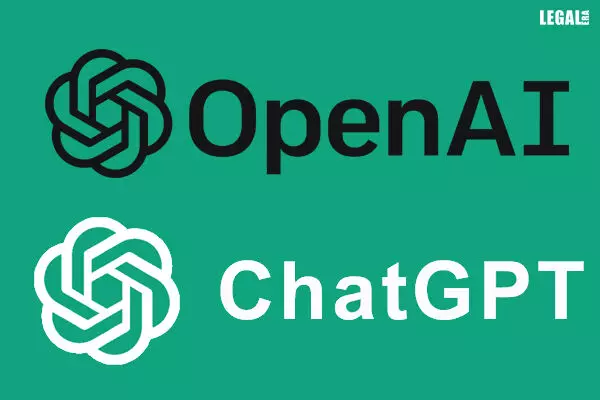- Home
- News
- Articles+
- Aerospace
- Artificial Intelligence
- Agriculture
- Alternate Dispute Resolution
- Arbitration & Mediation
- Banking and Finance
- Bankruptcy
- Book Review
- Bribery & Corruption
- Commercial Litigation
- Competition Law
- Conference Reports
- Consumer Products
- Contract
- Corporate Governance
- Corporate Law
- Covid-19
- Cryptocurrency
- Cybersecurity
- Data Protection
- Defence
- Digital Economy
- E-commerce
- Employment Law
- Energy and Natural Resources
- Entertainment and Sports Law
- Environmental Law
- Environmental, Social, and Governance
- Foreign Direct Investment
- Food and Beverage
- Gaming
- Health Care
- IBC Diaries
- In Focus
- Inclusion & Diversity
- Insurance Law
- Intellectual Property
- International Law
- IP & Tech Era
- Know the Law
- Labour Laws
- Law & Policy and Regulation
- Litigation
- Litigation Funding
- Manufacturing
- Mergers & Acquisitions
- NFTs
- Privacy
- Private Equity
- Project Finance
- Real Estate
- Risk and Compliance
- Student Corner
- Take On Board
- Tax
- Technology Media and Telecom
- Tributes
- Viewpoint
- Zoom In
- Law Firms
- In-House
- Rankings
- E-Magazine
- Legal Era TV
- Events
- Middle East
- Africa
- News
- Articles
- Aerospace
- Artificial Intelligence
- Agriculture
- Alternate Dispute Resolution
- Arbitration & Mediation
- Banking and Finance
- Bankruptcy
- Book Review
- Bribery & Corruption
- Commercial Litigation
- Competition Law
- Conference Reports
- Consumer Products
- Contract
- Corporate Governance
- Corporate Law
- Covid-19
- Cryptocurrency
- Cybersecurity
- Data Protection
- Defence
- Digital Economy
- E-commerce
- Employment Law
- Energy and Natural Resources
- Entertainment and Sports Law
- Environmental Law
- Environmental, Social, and Governance
- Foreign Direct Investment
- Food and Beverage
- Gaming
- Health Care
- IBC Diaries
- In Focus
- Inclusion & Diversity
- Insurance Law
- Intellectual Property
- International Law
- IP & Tech Era
- Know the Law
- Labour Laws
- Law & Policy and Regulation
- Litigation
- Litigation Funding
- Manufacturing
- Mergers & Acquisitions
- NFTs
- Privacy
- Private Equity
- Project Finance
- Real Estate
- Risk and Compliance
- Student Corner
- Take On Board
- Tax
- Technology Media and Telecom
- Tributes
- Viewpoint
- Zoom In
- Law Firms
- In-House
- Rankings
- E-Magazine
- Legal Era TV
- Events
- Middle East
- Africa
ChatGPT Creator OpenAI Sued for Theft of Private Data in ‘AI Arms Race’

ChatGPT Creator OpenAI Sued for Theft of Private Data in ‘AI Arms Race’
OpenAI, the tech company responsible for developing the artificial intelligence chatbot known as ChatGPT, is being sued over its practice of scraping other people’s information from the internet in order to provide users of the tool with seemingly human responses.
The lawsuit was filed in the United States District Court for the Northern District of California by Clarkson Law Firm. The suit alleged that OpenAI trained ChatGPT using data collected from millions of social media comments, blog posts, Wikipedia articles and family recipes without the consent of the respective users.
Thus, OpenAI violated the copyrights and privacy of millions of internet users.
Total 16 named plaintiffs have accused OpenAI of illegally accessing private information from individuals’ interactions with ChatGPT.
According to them the accused was in breach of the ‘Computer Fraud and Abuse Act,’ a law with a precedent for web-scraping cases.
Microsoft, which is a major OpenAI investor, was also included as one of the defendants.
The lawsuit also contended that OpenAI products use stolen private information, including personally identifiable information, from hundreds of millions of internet users, including children of all ages, without their informed consent or knowledge.
Clarkson said, “By collecting previously obscure personal data of millions and misappropriating it to develop a volatile, untested technology, OpenAI put everyone in a zone of risk that is incalculable – but unacceptable by any measure of responsible data protection and use.”
Pertinently, OpenAI is not the only company using troves of data scraped from the open internet to train their AI models.
Tech companies such as Google, Facebook, Microsoft and a growing number of other companies are all doing the same thing. However, Clarkson stated that it decided to go against OpenAI because of its role in urging its bigger rivals to push out their own AI when it captured the public’s imagination with ChatGPT last year.
Moreover, the new class-action lawsuit against OpenAI highlighted that company is ambiguous and secretive with people who sign up to use its tools in connection to the data they input into the model may be used to train new products that the company will make money from, such as its Plugins tool.
Besides, the complaint alleged that OpenAI has not taken sufficient steps to make sure children under 13 are not using its tools, something that other tech companies including Facebook and YouTube have been accused of over the years.



